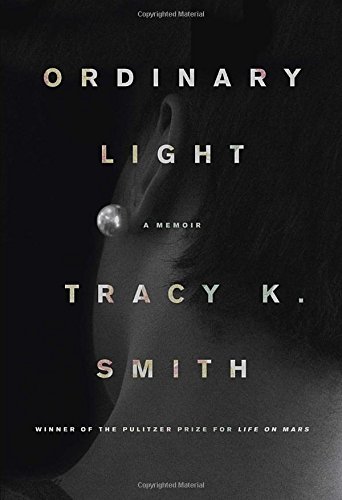
Ordinary Light
A memoir
کتاب های مرتبط
- اطلاعات
- نقد و بررسی
- دیدگاه کاربران
نقد و بررسی

March 2, 2015
This somber memoir by Pulitzer Prize–winning poet Smith (Life on Mars; Duende) reaches around the deep Christian piety of her Alabama-born mother to the author’s own questions about faith and her black identity. The work opens with the death of her mother from colon cancer shortly after Smith graduated from Harvard; then it looks back to the 1970s, when Smith and her four siblings were growing up in Northern California near the Travis Air Force Base, where her father was stationed as an engineer. The memoir is episodic; each chapter takes a memory of Smith’s youth and holds it to the light for scrutiny: her visit to her mother’s hometown of Leroy, Ala., when she was in first grade; her enrollment in a “mentally gifted minors” school that put her on the accelerated education track and led to years in majority-white schools; a lecture on sex education from her older brother Conrad; and her exchange of ardent love letters with one of her high school teachers, who was married at the time. Throughout the book, there is the strong sense that Smith’s mother’s love and faith held the family together. And, though God could not cure her mother, Smith finds her own way back to her faith by searching for a less circumscribed, more expansive way to understand her relationship with her mother, which she found in writing poetry. This is a nuanced memoir with a quiet emotional power.

December 15, 2014
A daughter's journey to claim her identity. Pulitzer Prize-winning poet Smith (Creative Writing/Princeton Univ.; Life on Mars, 2011, etc.) grew up in Fairfield, California, a solidly middle-class suburb, with four older siblings and doting, supportive parents. After a career as an Army engineer, her father worked in Silicon Valley; her mother, a former teacher, was a devoted member of the First Baptist Church. Sheltered by her community and family, Smith had little sense of her black identity until she spent two "sweltering and long" weeks visiting relatives in Alabama. Her grandmother, she learned, still cleaned for a white family; her own house smelled of "cooking gas, pork fat, tobacco juice, and cane syrup." Suddenly, Smith was confronted with a new image of her parents' Southern roots, and it frightened her. Back in California, though, that visit receded into memory as she excelled in school, had a chaste epistolary love affair with a teacher and racked up achievements for her college applications: various extracurricular activities, writing for the school paper and starting a Junior Statesman of America club. Teachers encouraged her, including one who remarked that as an African-American woman, she should "take advantage of the opportunities that will bring you." Smith resented the idea that her success would be based on anything other than her own talents, but when she was accepted at Harvard, the comment gnawed at her. Besides being a candid, gracefully written account of dawning black consciousness, Smith's memoir probes her relationship with her mother, whose death from cancer brackets the narrative. The author's drive to leave Fairfield was fueled by her "urgent, desperate" need to separate herself from her mother; in college, she became militantly black, "caught up in the conversation about Identity" and judgmental about her mother's beliefs. Guilt and regret pervade Smith's recollection of her mother's illness and death, darkening the edges of this light-filled memoir.
COPYRIGHT(2014) Kirkus Reviews, ALL RIGHTS RESERVED.

Starred review from February 1, 2015
Poet Smith, a Whiting Writers' Award winner who received the Pulitzer Prize for her third poetry collection, Life on Mars (2011), has ventured into prose and written a gracefully nuanced yet strikingly candid memoir about family, faith, race, and literature. Smith grew up in Northern California, snuggled close to her elegant and devout mother; challenged by her engineer father, whose career with the air force was followed by work on the Hubble Space Telescope; and enthralled by books. As one of few African Americans in their community, Smith navigated a sea of white faces, in stark contrast to the world she discovered when staying with relatives in Alabama. In meticulously structured, philosophically inquisitive chapters, Smith compares the orderly facade of her youth with her inner turmoil and spiritual dilemma as she became more cognizant of her legacy, the pain that was tied up in blood, in race, in laws and war. Smith holds our intellectual and emotional attention ever so tightly as she charts her evolving thoughts on the divides between races, generations, economic classes, and religion and science and celebrates her lifesaving discovery of poetry as soul language. Smith's intricate and artistic memoir illuminates the rich and affecting complexity of ordinary American lives.(Reprinted with permission of Booklist, copyright 2015, American Library Association.)

























دیدگاه کاربران